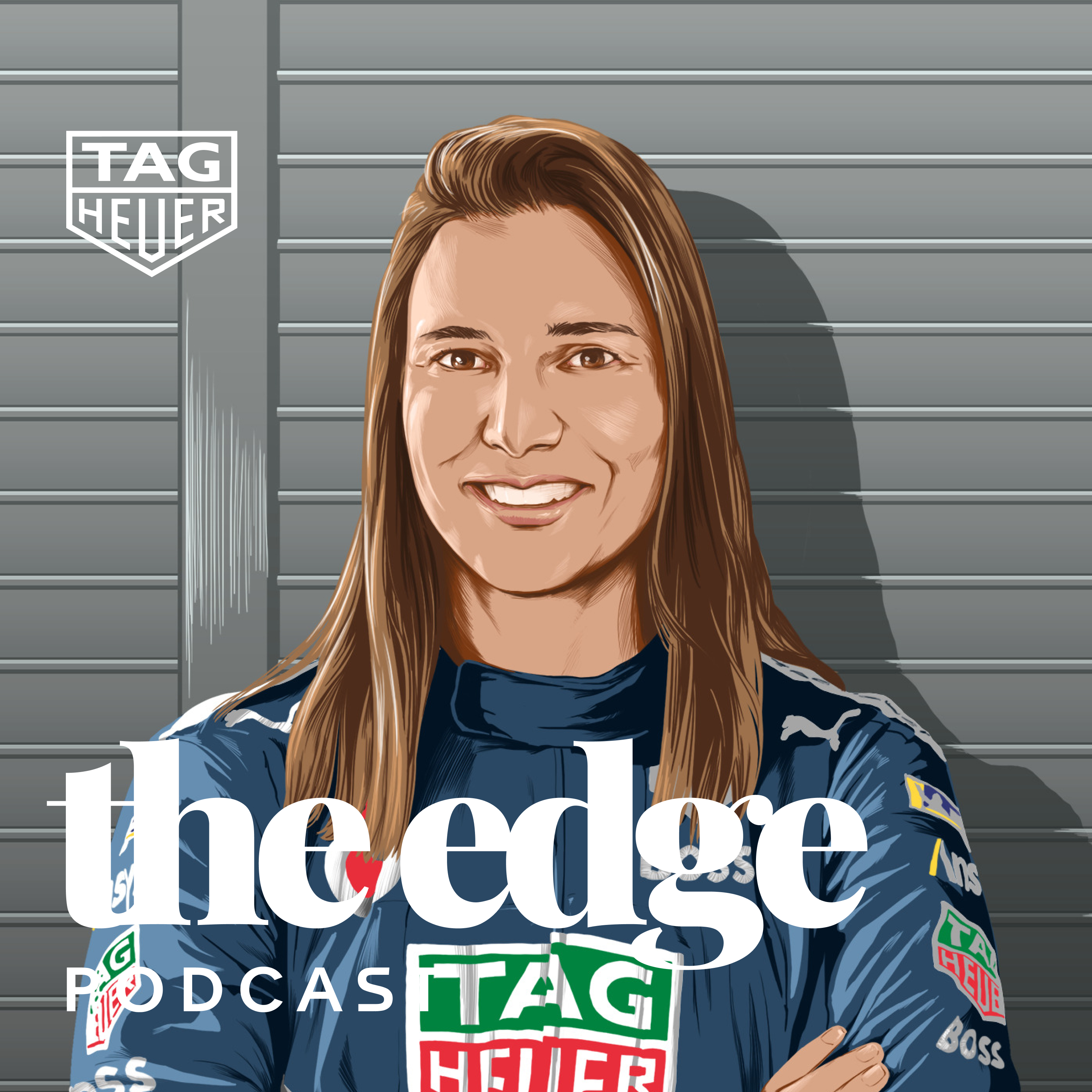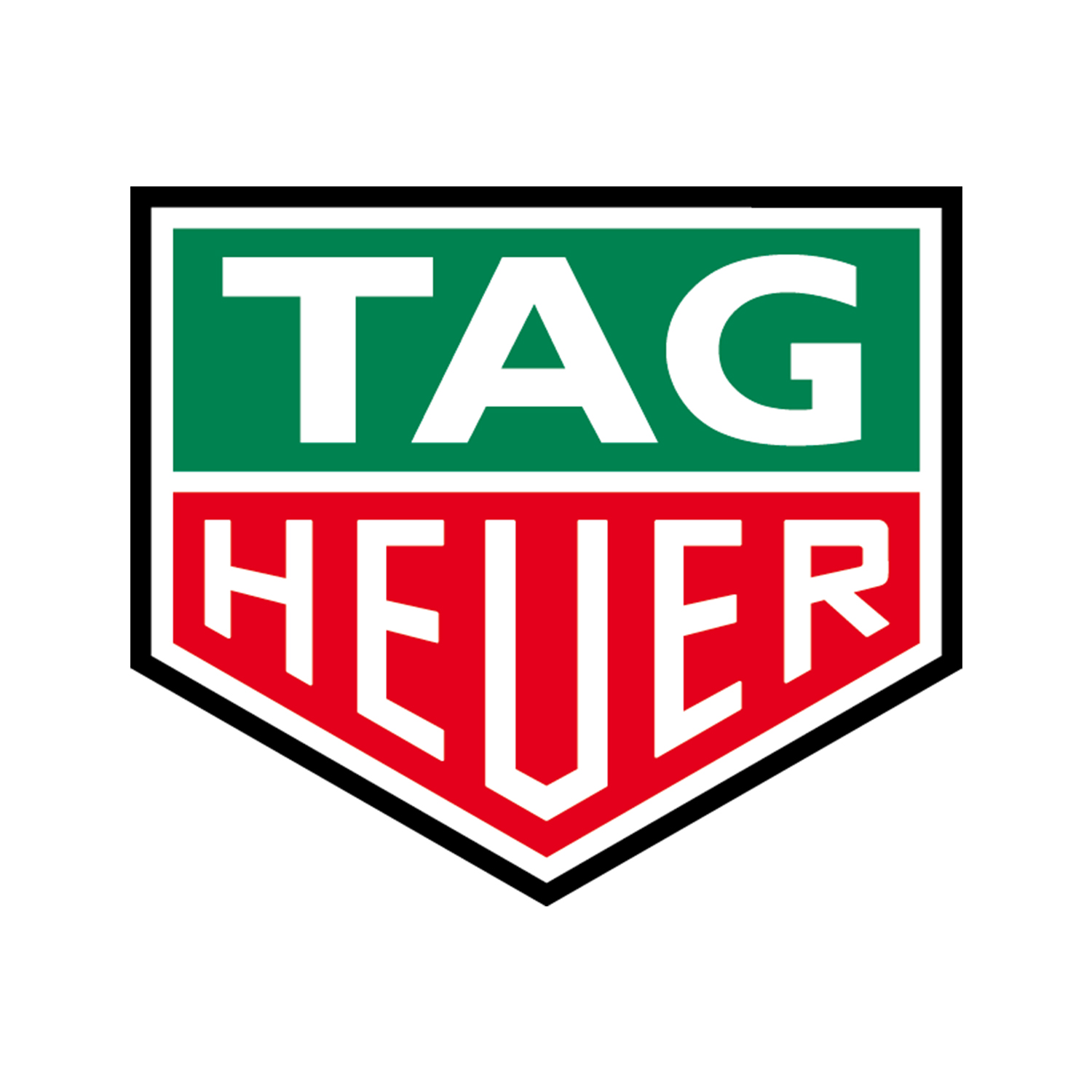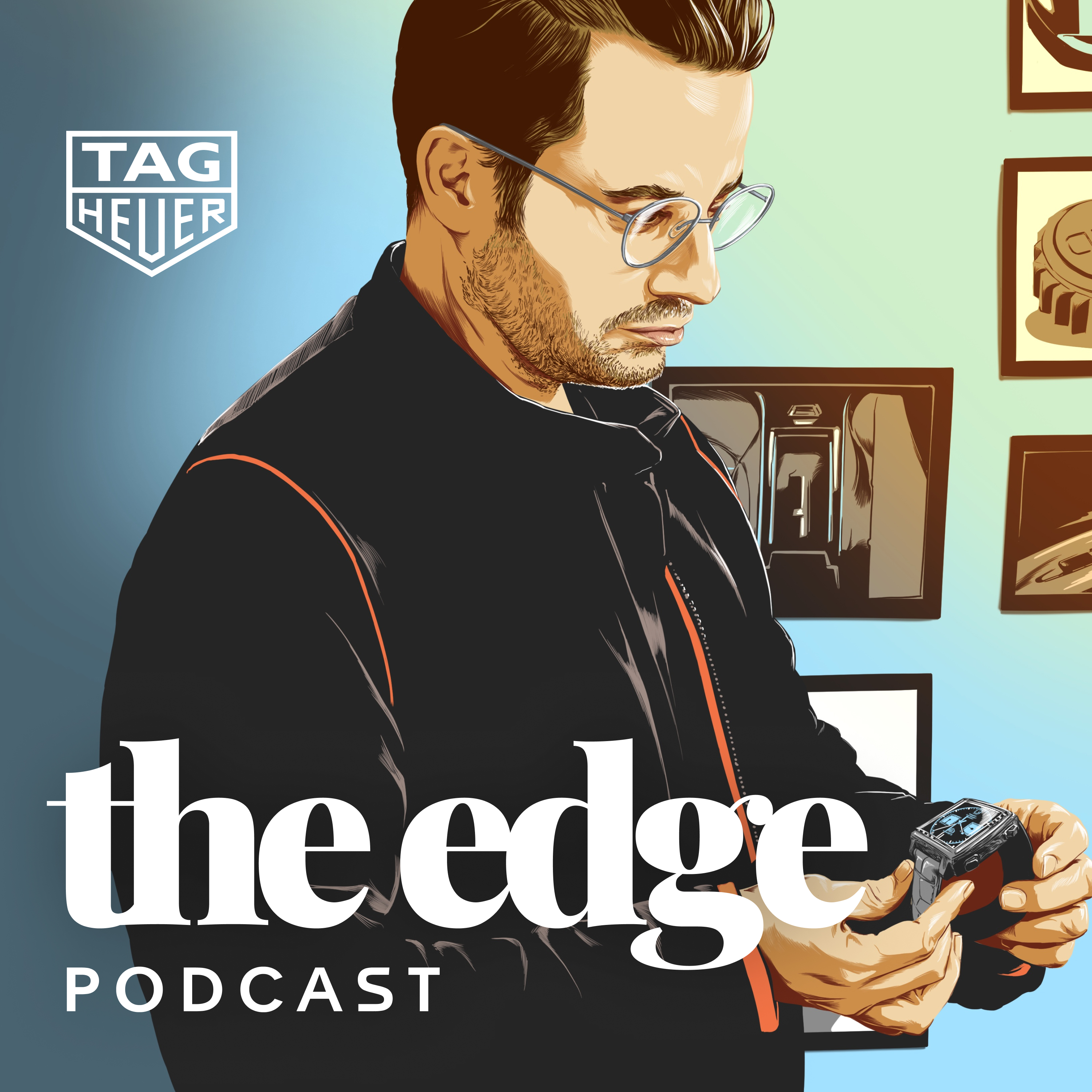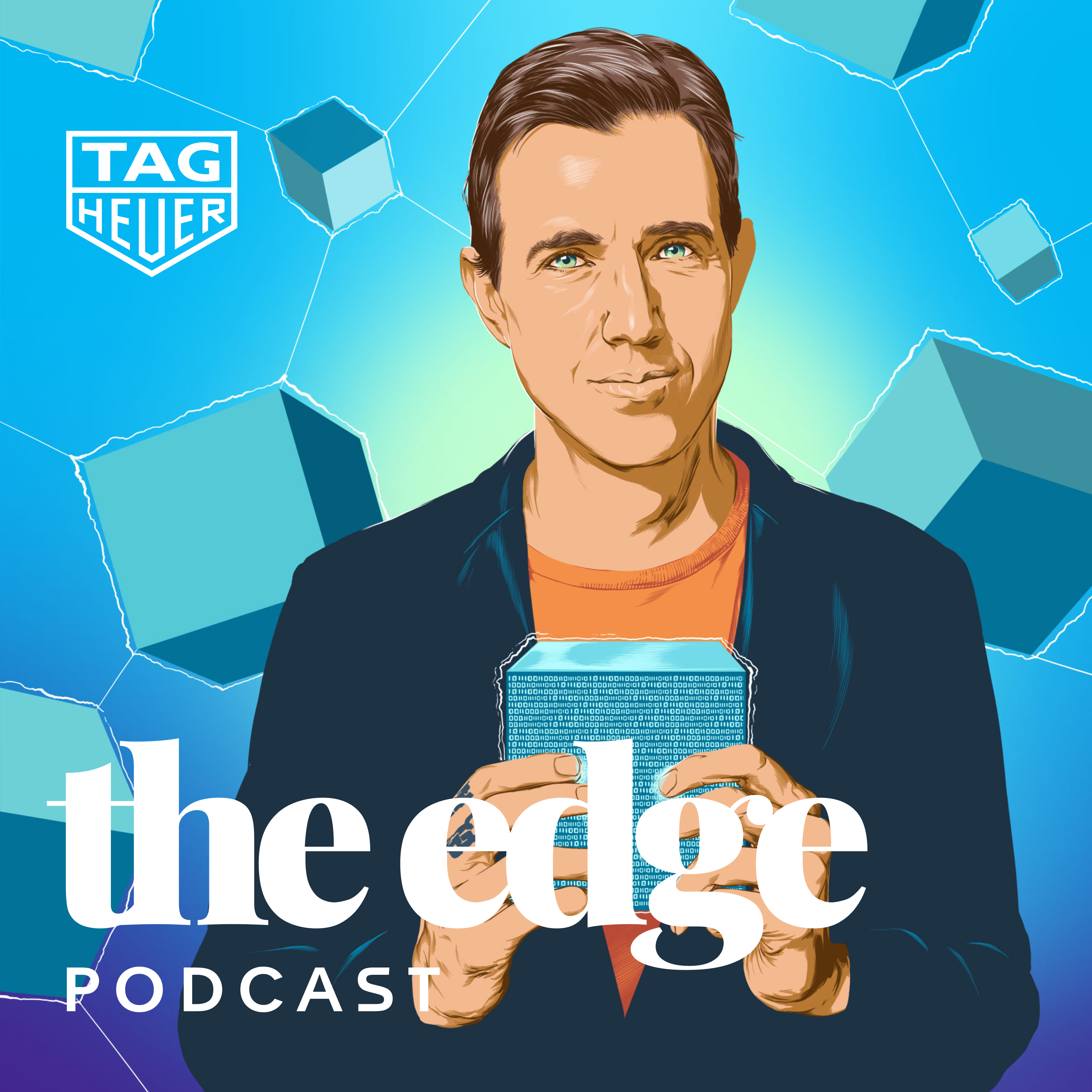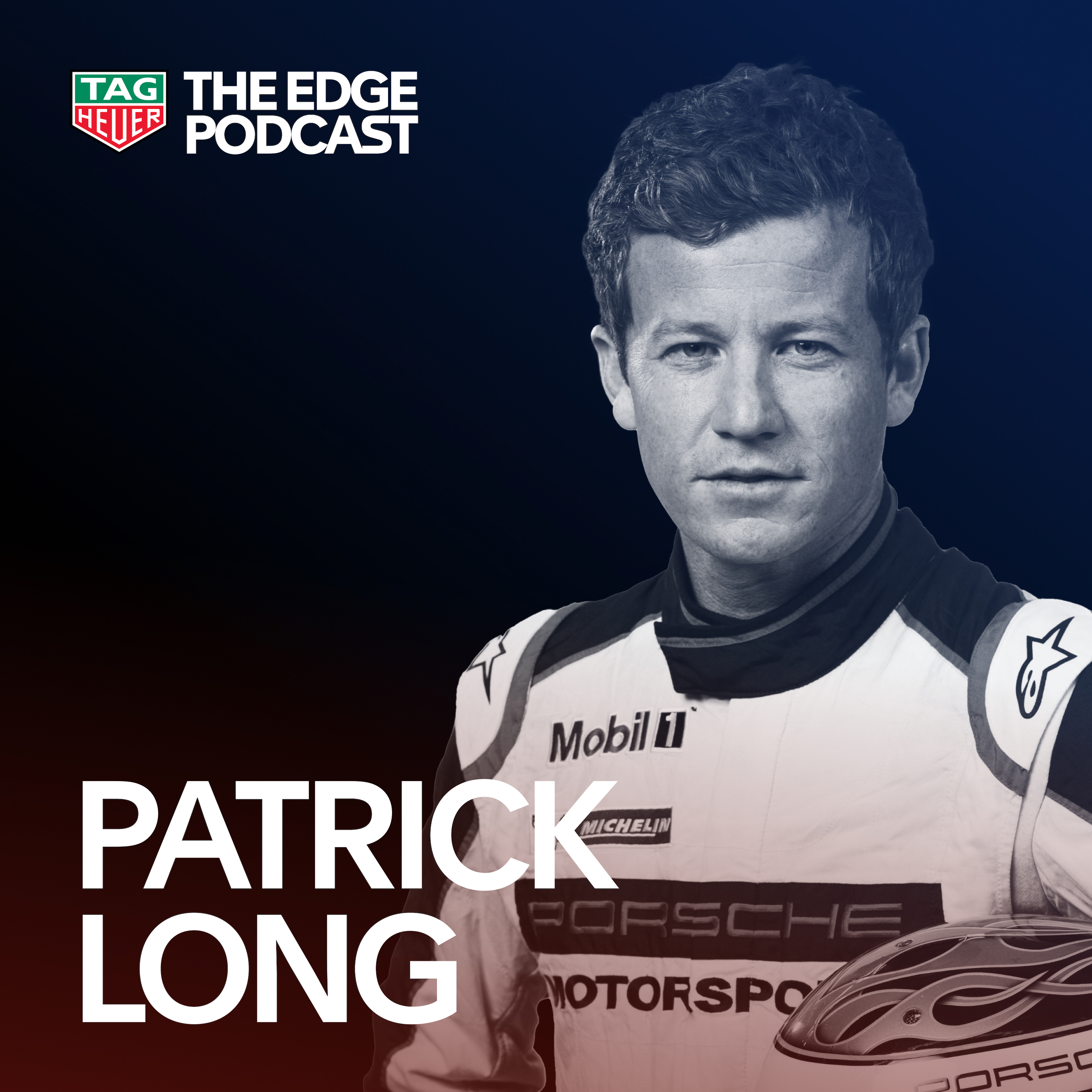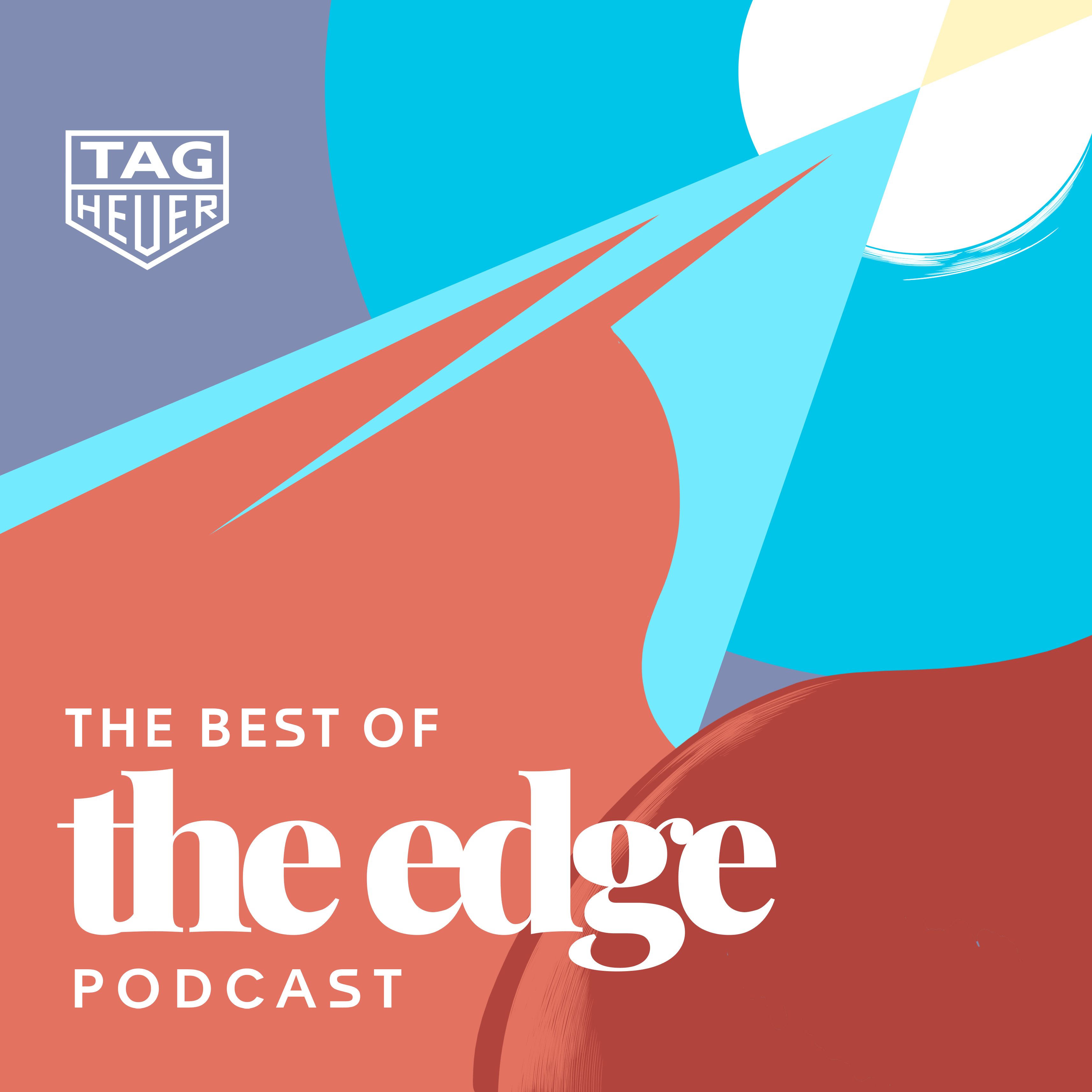Episode Transcript
Speaker 1 00:00:01 There is something quite exceptional about this episode's guest, Simone de Vero has been breaking barriers ever since she began go casting at the age of eight. Her talent and her passion have taken her from Formula Atlantic and Indie car to Formula One and Formula E in 2010. Simone was crowned rookie of the year at the legendary Indie 500. She's currently the reserve driver for the tag Hore Porsche Formula. Ete. We talked about Simone's early years, her unique experience across different racing formats, and her thoughts on the fast evolving world of Formula E. I'm Tey Van Brer. Welcome to the Edge, A podcast by Ta Hoya. We started the interview by asking Simone what it's like to be a woman entering the world of Motorsport. Here's what she had to say.
Speaker 2 00:00:54 To be honest, for the longest time, like, you know, I just saw myself as a driver, you know, for sure was a girl, and we were actually in Switzerland. It was quite funny. We were quite a few girls racing. We were like about five or six between like the age of 10 till 15. We were quite a few driving, but for sure compared to the guys, no, it was definitely a less number, but I never like really thought about it, you know, to me, I just wanted to go, go-karting and I wanted to win races and be fast.
Speaker 2 00:01:21 That was, uh, always my thought. And I never thought that it, that I'm different, you know, at the end of the day, it's not a sport where, you know, like sprinting or something like that. There's differences in, you know, you, your body where you maybe cannot run that fast and in racing, and it never really occurred to me. So I just kind of went there and, and wanted to, to be good. And for sure, you know, as time went on, I think you realize, you know, there's definitely less and less girls, you know, uh, in racing it's really hard to kind of move through the ladder and, and going to the top series. And uh, I was really lucky to, to reach a lot of, uh, different series. But, uh, yeah, I think that came more like later and in the sense more in the sense that what kind of an impact I could have, you know, uh, an inspiring young girls because for me, I never thought about, you know, I just wanted to go racing and, you know, yeah, I was a girl, but it didn't, to me didn't matter.
Speaker 2 00:02:13 Yeah, I started actually pretty young, you know, my, uh, dad has a car dealership in Switzerland, so I grew up around cars really. And, um, and he was really passionate about F1 and things like that, so we always watched the races and he used to say that, uh, I was only quiet as a baby when like F1 was on TV or something like that. So I think I had the kind of the racing bug pretty early and uh, um, I was really lucky for my parents kind of to let me try, you know, anything I really wanted to try. And he did a go-kart demonstration when I was like four
Speaker 2 00:02:47 Of the dealership, and I saw that and I was like, oh, I really, really wanna go driving. And, uh, I was too small, so he took me on his knees and kept, we cruised around and I really enjoyed it, but I was so sad that I couldn't drive by myself. Um, and uh, so I think I cried the whole day and I think it annoyed my dad quite a lot that day. So he said, okay, if you're a little bit taller, maybe you'll, you'll get a go-kart. So I kind of took that in and I was like, okay. Every two months I would tell him, look like I'm a bit taller, uh, and stuff like that. And when I was seven, I kind of got my first go-kart, so that's how it kind of all started. I, I think I had this racing passion from my parents, but you know, I kind of, yeah, it was kind of right there from the beginning, really.
Speaker 2 00:03:30 It's quite intimidating when you're going, you know, 380 k into a corner and uh, and things like that and learning how to drive these cars on a novel. And I think also the danger, you know, that comes with it. Uh, I think nowadays, you know, the cars are definitely much safer, but in my career, you know, like I've lost like two teammates, you know, and so those are like kind of, you know, I think modern day racing, it's something that doesn't really happen, uh, that often. So I think that that's quite hard. And, and that was a bit intimidating coming from Europe because you, you know, I never raced on no and stuff like that. And then you have street courses, you have road course, so you have to be actually a pretty complete driver and physically as well, you know, I think, um, they're the hardest cars to drive cuz you don't have powers steering, uh, the races are quite long, they're almost two hours long. So, um, it was, uh, I think for me it's one of the most challenging series and uh, uh, but it's also one of the most fun because, you know, a lot of things can happen and, uh, um, it's really competitive. You know, I love the competition, so I think, uh, I will always enjoy when I, when I get the opportunity to, to go back.
Speaker 2 00:04:41 I think as a racer, we really, the year that, uh, really shaped me the best was actually, I think it was Formula Atlantics, uh, I think it was in 2009 or something like that, where, um, I got, actually, I got in a team where, um, had two really good engineers and, and the team was, uh, they were really behind me, you know, and it was really the first time that kind of happened, happened to me that, you know, I, I was, let's say the lead driver in the team. I had, uh, actually Frankie Munis, who plays Malcolm in the middle, he was my teammate and he was racing. So, uh, yeah, we, we raced against each other for a few years in Formula bmw, and then we ended up being teammates and, uh, he was actually quite good at driving. So we had this really good team in the sense, and people behind me that, you know, really wanted me to succeed.
Speaker 2 00:05:29 And, um, and I worked really hard throughout that year with my engineer and I really, I felt like I got the car that I needed and we were actually, I think, um, leading the championship until the, the last race, uh, of, uh, of the season. Uh, and unfortunately I got taken out in, in Laguna Seka on the, in the last race and we finished dirt. But, uh, I think that really, that was the first time the right people around me and also gave me really a lot of confidence in my ability and, and that that really, I think shaped a lot, uh, throughout my career because I was able, you know, to go into IndyCar and have the confidence to, to know that, you know, I can, I can be really competitive doing this. Yeah,
Speaker 2 00:06:09 We were not super good. I think we finished fifth or something like that, and then we went testing and we spent doing, we spent a day doing this figure eight track, which we never really do, you know, and we were just trying so many things, and then I just found the set things that I wanted and the engineer kind of understand what I wanted, and then all of a sudden we really clicked and we went to the next race, uh, I think it was Salt Lake City, and I think we had pulled position by almost like half a second, you know, it was really a really big step and we dominated that weekend. So that was just, uh, that just showed me, you know, to, to find the, the engineer getting to click, getting for him to understand what you need and me communicating to him what I needed, just clicked. And that really made a huge, huge difference. Yeah,
Speaker 2 00:06:57 Since that moment, I knew how, you know, I'm the type of driver that needs a specific car and I need to get there. You know, I'm, I'm not the type of driver who can just jump into something and be fast. It's just, you know, some people are lucky enough to, to be able to do that, but for me it's a, I really need to work a lot to, to get to where I want. But once I have that, I can be, I'm really good. And, uh, um, so yeah, that really gave me this, this opportunity in sense, okay, that's what I'm looking for. And then I went to IndyCar, uh, had a fewer races and also there, then I found another engineer, you know, we started working the same way together. And uh, that's what happened in 2013 when we started being super competitive and we, uh, we actually finished on the podium. So, uh, yeah, it was something that, uh, I took from there, but it took a little bit of time, but then we found it again in 2013 in IndyCar.
Speaker 2 00:07:51 Well, this whole American story, you know, as well, I think in my career, you know, I, I was driving from Reno in, what was it, in 2005, and, um, here in Europe I did the Italian championship, and then I didn't really have the money to stay in Europe, and I found like a sponsor in America through friends of, you know, kind of racing stories, you know, you need to go, go find a bit of money. And uh, and I went there and, uh, it was, I did form bmw and it was really for one year. And then, uh, yeah, I ended up being eight years in the us you know, and reaching IndyCar. So, um, it was quite interesting that once I got there, you know, my career really started going and there was a lot of things happening. And in 2010 when I got to IndyCar, you know, uh, it is the, you know, for me it's the second, you know, there's Formula One, there's formula and there's IndyCar.
Speaker 2 00:08:41 Those are the three series you want to be in, in, uh, in, uh, in Open Wheels. So it was like really special to, to get there. And um, I also did my first Indy 500, which, you know, I, I'd heard a lot about this race and, um, being from Europe, you know, you kind of, okay, it must be pretty cool. And uh, when you walk out there, you know, and there's over 300,000 people there, it's uh, it's quite impressive, you know, and then, um, you realize, okay, this race is pretty important. And, uh, so that was really special, you know, and I one rookie of the year there, so, um, it was, uh, yeah, that, that was definitely one of, one of the highlights. And also I think the first race we were quite quick, uh, in Brazil. Um, so there was a lot, you know, a few steps that were really good.
Speaker 2 00:09:25 And, uh, I think it was, uh, just really cool to, to be in IndyCar and uh, and kind of, you know, be in there for sure. You know, I was 17 when I went to the US and, uh, I don't know, for me, for me, to be honest, it wasn't that difficult because it was kind of like, if I wanna keep racing, you know, that's what I need to do. I think for my parents, maybe it was a little bit more difficult because, you know, I was, uh, I was still kind of, I'd finished my normal school, but I was in the second year and, you know, I think especially in Switzerland, every, you know, school is, is an important thing. And um, and we just decided, okay, we'll go for a year and, and see what happens. And then I ended up being there.
Speaker 2 00:10:01 So I think those are things that shape, you know, for me, I was always super driven to go racing and I think we see it throughout my career, you know, uh, it's always been about opportunities that popped up. You know, I ended up racing in Australia as well for three years. So cuz the opportunity came. So, uh, I've always kind of been following the opportunity and, um, yeah, I think the, I think the 2010, I think the 2009 in, in Atlantics really shaped me the most, you know, I think that that year was just, I don't know, it just gave me the confidence that I knew I can be, you know, winning races and I can be really competitive. And going into that first indie car season, I just kind of backed that up, you know, I knew I could do it and I wasn't really afraid that there was bigger cars, you know, and I was at the top level of open wheel racing in the US that didn't really phase me, it was just, uh, I think it was just really cool to achieve that. And for me, I wanted to be, you know, competitive and, and do that. And um, and yeah, I think, so it was cool to do that first year and, and then we had two years that were a bit more difficult. 2011, I had like a big crash at Indy, so, um, I think that was, those are all things that shaped me throughout, throughout my career, but, you know, I think, uh, yeah, it's makes my story a little bit more interesting, I guess. Yeah.
Speaker 0 00:11:17 <laugh>,
Speaker 1 00:11:19 Just a side note here, what Simone is referring to is the crash she suffered during the indie 500 in 2011. Luckily she walked away unscathed. She tells us how that moment shapes her career.
Speaker 2 00:11:33 You know, I think as a driver you, you know, you kind of feel a bit invincible to be honest, you know, I don't know, because we do this sport and, you know, we are driving, I don't know, really fast next to walls, you know, there's, you know, there's a danger aspect for sure because you are driving so fast, but you are not really aware of it, you know? And, um, and the 2011 crash, it like had a suspension failure going like, I think 370 ks an hour and flipped and caught on fire. So, and, and I actually couldn't get outta the car, so, uh, it was like really hard. And, and then, you know, they came with the fire extinguisher and kind of woke me up and I got out of it and I actually got out car and I was like, I'm never driving a race car anymore.
Speaker 2 00:12:13 So that was the first time that feeling happened to me that I was like, nah, I'm done. Uh, and then, um, actually my parents were flying over that day, and so my dad has always been kind of the person who pushed them. My mom was always a bit like the more, not scared, but you know, she was a bit more respectful to it then, and they showed up at the hospital. I had like, pretty bad burns on, on my hands and uh, um, and then my mom said, oh, but you know, maybe you should should try it again, because I was like, I'm not getting back in the car. And then because she said it, I was like, you know what, maybe I need to try it. And uh, on Saturday I went out, uh, still, you know, with my burns and qualified the car for 8,500.
Speaker 2 00:12:54 So, and I told myself, look, if you go out and I'm scared, you know, I know that's, I shouldn't do it, you know, but then I can also close that chapter and move on, or if I still have a smile, you know, and I still enjoy it, you know, I need to push through it. And, and I went out and qualified the car and for sure it was not easy, it was just a lot of like, commitment, you know, to, to go over and, and, and getting it done. But, uh, at the end, you know, I still had a smile on my face, so I knew I needed to, to work through this. And, uh, for sure I think it took, you know, it took a few months, you know, to feel comfortable again. And I think also because it was something that broke on the car, that's sometimes a bit harder to, to get over because it's not something, you know, when you do a mistake, I think it's a little bit easier because you tell yourself, okay, don't, don't do that again.
Speaker 2 00:13:40 So it took it a little bit of time and, um, and, and yeah, it was, it was pretty difficult and I think that year as well. Yeah, one driver like got killed in, in Vegas, so it was, I think just a lot of things happening and for sure, I think they're not easy things, especially nowadays, you know, because you never get across these things really. So, um, yeah, it's not super easy, but, you know, we, we are racers and I love doing the sports, so you, you kind of go through it and, uh, and you know, I'm glad, glad I did and you know, we are still racing, so I think, you know, it was the right, for me, it was the right thing to do to push through it.
Speaker 2 00:14:20 I think if you do a sport, the competitiveness is, is important, you know, you, you wanna win. But for sure, I think in racing it's, for me it's really, you know, when when you go out and you push like this machine on the limit, you know, as a human being, I think it's super, is really special, you know? And, uh, even, you know, when you do a perfect qualifying lap, you know, where, you know, you know, you really extracted everything out of it. Um, I think it's so rewarding. Um, so, so for me it's that, but for sure, you know, the competitive, when you're racing, you're racing against people and you're fighting and, uh, that's really important as well. But yeah, I think the driving is, you know, when you go so fast and you just, you're moving this machine, I think it's quite cool. Yeah, it's quite a cool feeling. <laugh>,
Speaker 2 00:15:06 I think, especially in racing, you know, not just the driving part, you know, I think as a career it's, it's never straightforward, you know, I think you have a lot of goals. You know, when I, when I was younger, you know, formula One was always my goal and you know, I did my indie car and then I thought I had the opportunity to go to F1 and I tried that, and then unfortunately didn't happen, you know, because of circumstance that were really outta my control. So that was a hard moment because, you know, you work so hard towards a go and all of a sudden you don't really see where you're going, and then you find different things, you know, now, you know, I love when I get the opportunity and go to win races, but I think those are hard, like, difficult moments because it's not straightforward, but I think it's like anything in life, you know, sometimes, uh, yeah, you know, you sometimes you need to accept it and kind of wait and, and something else happens, but, uh, yeah, I've been pretty lucky, you know, to, to be racing a lot of different cars and uh, uh, so that's, that's pretty cool.
Speaker 2 00:16:04 But for sure, you know, if I would've stayed in one series, maybe my results would be also much better and much greater. But, um, yeah, sometimes that's how life is and, uh, and you go where the opportunity is. Yeah.
Speaker 1 00:16:18 Do you think Formula E is the future of motor sport? Does it have a bright future?
Speaker 2 00:16:23 Yeah, well, I think so. You know, I think, uh, if, if, to be honest, you know, if I look back 15 years ago, I never thought we would go racing electric, you know, it didn't cross my mind and not a lot of people around us. So, uh, uh, I remember when I drove in in season two, it was, I don't know, I think a lot of people were skeptical with it because it was so different and, and, and, and so new. And, um, and, and now we are, you know, in season season eight, and it's, the cars have evolved so much, you know, in, in the last eight years. So that's cool to see. And I think as a driver as well, to be involved in this process, I think it's quite special. You know, if you look back at 40 years, you know what Formula One has done, like for safety and things like that, I think formula is really, you know, doing a lot for what is happening in the future.
Speaker 2 00:17:09 And as a driver, it's, it's cool because you kind of can say, you know, you're part of this and hopefully, you know, in 30, 40 years I'll be looking back and be like, yeah, you know, like we, we developed all these, these, you know, these cars that we are driving around. So I think there's, uh, a huge potential now, you know, there's all these other series, you know, I don't think they're gonna go away either, but, uh, you know, I think it's, uh, it's great to have a championship to showcase that, you know, electric mobility can be cool, can be fast, and uh, uh, and I think that's, yeah, I think it's cool to be involved in it.
Speaker 1 00:17:39 Do you get a sense that motor sport is becoming more inclusive?
Speaker 2 00:17:42 Well, I think there's more and more like when you look at smaller categories, there's more and more girls I think being involved. And, uh, I think that's, that's important, you know, as well as on the engineering side, on the mechanic side, I think there's more girls doing it, but for sure I think it's still missing, you know, at a really high level, somebody that, a female driver that has been really successful, you know? And, uh, for me, I've been lucky to have success in Indie car, uh, now with Porsche as well. You know, there's a lot of things going on, but it's still, I think there's still one more step. You know, I feel like one of us, like especially in my career, you know, I wanna be in the right car at the right time in a really top series because I think I can show that I can fight for a championship and that's still something that I'm fighting for, and hopefully I get there and hopefully that will change a lot of perspective, I think, in the sport as well. Yeah,
Speaker 1 00:18:32 The Gen three formula, ECAR is a game changer. Have you driven it yet?
Speaker 2 00:18:36 Yes, I have. Yeah,
Speaker 1 00:18:37 Yeah, yeah. So what makes Gen three so unique?
Speaker 2 00:18:39 Like, well, the, from Gen one to the Gen two was already a huge step. Uh, you know, the Gen two feels like a, a race car. The Gen one felt not so much as a race co it was quite difficult to drive, and this one was really a race car, and also all the things you can do, you know, with the Electric motor, it's, it's so different. You know, as a driver, you need to think about so many more things because you can, there's so much more potential to do. And, uh, now Gen three is gonna come out, which is also a huge step forward. So, um, it's really like special to see all this, uh, these, these things that are happening. And, um, and yeah, I think, uh, I think the cars, you know, get faster and, uh, and, and I think it's, uh, it's really good to see that. Mm-hmm.
Speaker 1 00:19:20 <affirmative>, did you get to give a lot of feedback and help shape the Gentry car?
Speaker 2 00:19:23 Yeah, we do. Like, you know, I think, uh, especially, you know, in a series like formerly or like in the car, you, you, you know, because everyone has the same chassis and it's kind of similar. It's really, I think difference then is how you get to get the car, how you want it to drive, you know, for fitting for your driving style. And in the Formula Car, because of the electric motor, you have so many settings that you can try. So it's really important to communicate with your engineer to get to that point. And, um, and I think that's actually really the most important part in Formula E. If you get that right, you know, you're most likely gonna be gonna be starting up front then and be competitive, and, and that's a really important aspect of it.
Speaker 1 00:20:04 Is Formula One still the place to be, or would you say that Formula E or even endurance races are equally attractive to drivers?
Speaker 2 00:20:11 Yeah, for sure. I think, you know, any racing series is challenging. I think, you know, the, the formula one thing because it has so much history and, and I think when you are young, you know, you kind of look up to that, you know, I think it's normal and, um, uh, but you know, yeah, I think even now, you know, I get to drive like really good cars, you know, even with Porsches there is so many cool opportunities and things like that, so you also learn to appreciate that. But I think, you know, I think when you, you know, it's important to have one goal where you want to be, and then you see where, where the journey takes you. But, uh, yeah, I think there's a lot of cool, cool race CARSs out there.
Speaker 1 00:20:48 What's your experience working with the tag Porsche Formula E team?
Speaker 2 00:20:52 It was really cool to, to sign, you know, as a factory driver, uh, especially for Porsche, you know, I think as a driver, when you want to drive for a manufacturer, it's definitely one that is on the, on top of the list. And, um, it's really cool, you know, even with my teammates, you know, with Pascal and Andre, they've done quite a lot in their rising career as well. And, uh, and just to kind of learn from them and, you know, like spend time with them, I think it's, it's, it's pretty cool. So, uh, you learn a lot, you know, and everyone has their journey, you know, I think Andre, you know, spend a lot of time in Japan before, so it's kind of funny that to hear the story from each other, you know how to get there. And here we are, you know, in this one family now at Porsche. So I think, uh, it's, it's, it's pretty special.
Speaker 1 00:21:33 Yeah. Did you know anyone from the team before this?
Speaker 2 00:21:35 I knew who they were, but I never really spent time. So, you know, when you come to a new team, you always get to meet new people and stuff like that. And, and they're two, they're really different characters, but you know, I think, uh, uh, they all work really well together. Yeah.
Speaker 1 00:21:49 Simone de Vero, thank you so much for joining us on the Edge.
Speaker 2 00:21:53 Thank you.
Speaker 1 00:21:59 Thank you for listening to this episode of The Edge. If you'd like to hear more about Formula E, check out our very special episode with Simone's fellow drivers, Andre Lare and John Van. And if you enjoyed this episode, don't forget to subscribe and leave us five stars. It does make a difference. Thank you so much to Simone de Vero for joining us. I'm your host, te Van Bruer, and I'll be back next month with another episode of The Edge, a podcast by TA Hoya. See you soon.
